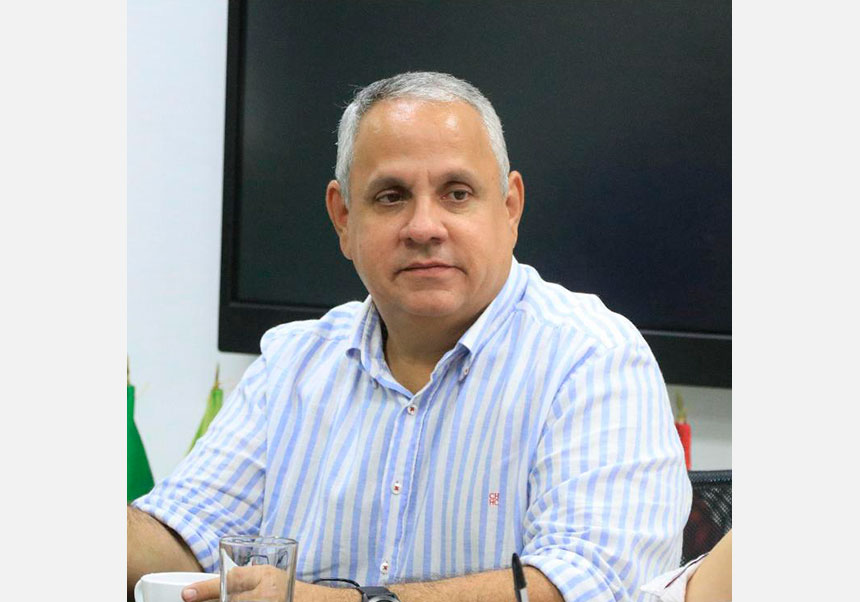
On the 23rd of June 2016 the last part of the agreement Peace Talks of Habana was signed by the Columbian Government and FARC.To reach a stage of permanent peace, the State has to create the necessary conditions for veterans to reintegrate into society. This has to be done through creating opportunities other than fighting in a war.
29 june 2016
Last Monday 27th of June, a student of Master's Degree in Law, Business and Justice,Viviana Lucía Rodríguez Blanco, defended before the jury her Master's Degree Final Project titled The participation of businesses in the implementation of measures of economic reintegration of veterans in the Columbian post-conflict. The following is a short summary:
After seventy years, Columbia is about to put an end to an armed conflict which has fractured the pillars of its system of economic development, its political sustainability and its social prosperity. In the year 2012, the national government announced the beginning of the Peace Talks with FARC - Fuerzas Armadas Revolucionarias de Colombia (Columbian Revolutionary Armed Forces). It announced the six main points that were on the negotiation agenda, such as integral agricultural development, political participation, end of conflict, drug trafficking, the rights of victims and the implementation, verification and endorsement of the agreements.
Apart from the polarization in different sectors of the country which has spurned the Peace Talks of Habana, the Columbian society has to prepare itself for the post-conflict, and because of this it is essential to create the necessary conditions for the future veterans to reintegrate into the society and to become aware of the emerging opportunities, other than those involving participation in an armed conflict.Due to all this, it is believed that to ensure stability and security during the post-conflict, it is necessary to develop measures of economic reintegration of veterans through making sure that the economic foundation is formed by labour activities.
Document CONPES 3554 of 2008 from The Council of the National Economic and Social Policy was, in effect, the first national policy connected with the social and economic reintegration of illegally armed individuals and groups, designed to be executed during the Columbian conflict in the face of partial demobilization which took place among certain paramilitary armed groups outside of the law. The national government, through Columbian Agency for Reintegration, began the implementation of the measures of economic reintegration along with the collaboration of private companies, and this positive experience gave private companies a more vital role, as they are now considered a means through which policies of economic reintegration can be carried out. This can be done with the creation of new jobs and enabling veterans to work legally in order to earn a living and support their families.
To ensure safety and stability during the post-conflict, it is necessary to develop measures of economic reintegration of veterans through making sure that the economic foundation is formed by labour activities
Although some of the public policy related with economic reintegration has been implemented with the help of the private sector since the year 2008, it should be affirmed that some private companies should assume a bigger challenge as a result of the Peace Talks in Habana, keeping in mind that the consequence of this process will be the disarmament of 17.500 guerrilla fighters, and the necessity of forming adequate conditions for economic integration so that permanent peace might be achieved.
In this way, taking into account the challenge that private companies should face in order to meet the needs for the improved quality of veterans´ lives through employment, their participation should continue in these three, already established dimensions: as beneficiary, as economic actors and promoters of measures of economic reintegration of veterans.However, it has been proposed that these three ways of being a part of these policies should be carried out in accordance with the stages of the post-conflict, such as the stabilisation stage, recovery and development, as what has been possible to identify is that not all of these ways of participation of private companies are appropriate for each stage.
Combining three dimensions of participation of private companies with three stages of post-conflict will allow one to adopt adequate measures to reach objectives of economic reintegration in temporary and permanent economic reintegration of veterans, and it will be in accordance with using entrepreneurial force to achieve peace.However, this proposal makes it clear that although private companies play a key role in economic reintegration of veterans, their participation implies cooperation with state institutions, which doesn´t mean replacing the State with regard to its respective responsibilities, as it is the government´s responsibility to establish policies of reintegration and to define the actions and resources that are needed to reach this objective.













